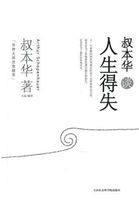In accordance with this view of the situation the Japanese Government informed Count Lamsdorff that, as it desired to remove from the relations of the two Empires every cause of future misunderstanding, it would be glad to enter with the Imperial Russian Government upon an examination of the condition of affairs in the Far East, with a view to defining the respective special interests of the two countries in those regions.
Though Count Lamsdorff accepted the proposal with apparent cordiality and professed to regard it as a means of preventing any outsider from sowing the seeds of discord between the two countries, the idea of a general discussion was not at all welcome.
Careful definition of respective interests was the last thing the Russian Government desired. Its policy was to keep the whole situation in a haze until it had consolidated its position in Manchuria and on the Korean frontier to such an extent that it could dictate its own terms in any future arrangement. It could not, however, consistently with its oft-repeated declarations of disinterestedness and love of peace, decline to discuss the subject. It consented, therefore, to an exchange of views, but in order to ensure that the tightening of its hold on the territories in question should proceed pari passu with the diplomatic action, it made an extraordinary departure from ordinary procedure, entrusting the conduct of the affair, not to Count Lamsdorff and the Foreign Office, but to Admiral Alexeyef, the newly created Viceroy of the Far East, in whom was vested the control of all civil, military, naval, and diplomatic affairs relating to that part of the world.
From the commencement of the negotiations, which lasted from August 12th, 1903, to February 6th, 1904, the irreconcilable differences of the two rivals became apparent, and all through the correspondence, in which a few apparent concessions were offered by Japan, neither Power retreated a step from the positions originally taken up. What Japan suggested was, roughly speaking, a mutual engagement to uphold the independence and integrity of the Chinese and Korean empires, and at the same time a bilateral arrangement by which the special interests of the two contracting parties in Manchuria and in Korea should be formally recognised, and the means of protecting them clearly defined. The scheme did not commend itself to the Russians. They systematically ignored the interests of Japan in Manchuria, and maintained that she had no right to interfere in any arrangements they might think fit to make with the Chinese Government with regard to that province. In their opinion, Japan ought to recognise formally that Manchuria lay outside her sphere of interest, and the negotiations should be confined to limiting her freedom of action in Korea.
With such a wide divergence in principle the two parties were not likely to agree in matters of detail. Their conflicting aims came out most clearly in the question of the open door. The Japanese insisted on obtaining the privileges of the open door, including the right of settlement in Manchuria, and Russia obstinately refused. Having marked out Manchuria as a close reserve for her own colonisation, trade, and industry, and knowing that she could not compete with the Japanese if they were freely admitted, she could not adopt the principle of "equal opportunity" which her rivals recommended. A fidus achates of Admiral Alexeyef explained to me quite frankly, during the negotiations, why no concessions could be made on that point. In the work of establishing law and order in Manchuria, constructing roads, bridges, railways, and towns, Russia had expended an enormous sum--estimated by Count Cassini at 60,000,000 pounds--and until that capital was recovered, or until a reasonable interest was derived from the investment, Russia could not think of sharing with any one the fruits of the prosperity which she had created.
We need not go further into the details of the negotiations. Japan soon convinced herself that the onward march of the Colossus was not to be stopped by paper barricades, and knowing well that her actual military and naval superiority was being rapidly diminished by Russia's warlike preparations,she suddenly broke off diplomatic relations and commenced hostilities.















